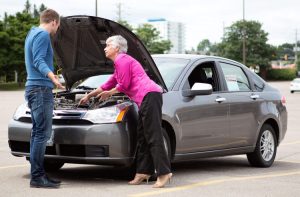
The automotive industry is experiencing dramatic, exciting shifts. In the coming two years, car manufacturers are expected to introduce more than 30 new electric vehicle models, with autonomous vehicles expected to be released shortly after.
It’s not only on the side of products that things are changing. The latest innovations in retail have simplified the complex buying process and have changed financing trade-ins, titling registration, insurance, and other aspects of the buying process for cars and trucks.
For the consumer, this is a sign of progress. For others, it’s an excuse to bring back the old and old adage that the time for the local car dealership has passed. This is a lot of flimsy oil. The retail model for cars and dealer models is exceptionally robust and is becoming more popular among the millennials in addition to Gen Z.
A recent article in the highly regarded MarketWatch magazine said direct sales from companies such as Tesla and Carvana are the future of retailing in autos. These assertions are intuitions without real-world proof and overlook what people buying automobiles and trucks have been through.
Carvana, a retailer of used cars, is currently in the sights of state and federal regulators from the government regarding a myriad of concerns involving customers and the purchasing process. Look up “Carvana complaints” online and see many dissatisfied customers nationwide. With its stock falling by over 80% in August and its business model being called into doubt, Wall Street is rethinking its support for this once-in-a-generation market disruption.
In a way, Carvana is a kind of middleman between the seller and buyer, the advocates of change hate. Tesla is the only company to permit negotiation pricing; it has priced up its essential car by 37.7% in the time since the day it was launched, which is a significant price increase to pay a fixed price for a vehicle that is already priced too high for the majority of car buyers in the middle class to contemplate. In the meantime, Tesla customers often wait three weeks or more for basic service and repairs, mainly due to the lack of dealership competition within this Tesla network.
This might be fine for wealthy Tesla owners with alternatives for private transportation, but waiting for three weeks of service is not a good idea for people in the mass consumption market. To say that Tesla’s model of sales is what’s to come in the next decade of automobile purchases is hilarious.
The franchised model of dealerships operates. The sales prices may rise due to microchip supply limitations, which have slowed sales and supply by two million vehicles from the beginning of 2019 and decreased incentives for manufacturers. However, they’re nothing like Tesla’s high-end models.
Customers benefit when local operating and controlled dealerships compete on the service front. Direct sales models are the most popular. If the closest Chevrolet franchise can’t fit your current needs, you’ll almost likely find a different one that will.
Please do not overlook that virtually every dealership sells online and in their showrooms and is now adopting the one-price model. This creates enormous efficiencies on the sales front. One dealership company based in Minneapolis is selling on an all-price system and is close to letting customers enter and out of their store within 30 minutes. They think they can cut the time down to 15 minutes or less.
The evidence is in the numbers. Escalent, a Detroit-based research firm, conducted a massive analysis on Electric Vehicle “intenders” -those who want to buy an electric vehicle in the coming two years. Excellent inquired about which sales customers prefer, either the traditional or the franchised models.
Just 20% of 3,000 respondents liked the direct sales model used by Tesla. Surprisingly, this percentage was lower for millennials and Generation Z, with 94% of those younger than 35 content with their dealerships.
Local dealerships have seen a dramatic change over the past 30 years. First-time buyers and young drivers are aware of this in their own experience. They’re stuck in stereotypes of the 40s that don’t are seen today.
Innovations that increase efficiency, productivity, or economies of scale are appreciated. There are many ways franchisees can improve how they conduct business. Simply because something is different does not mean it is more effective. Also, the tried and tested manufacturing and selling techniques are relied upon because they work well and have proven their worth in the marketplace.





